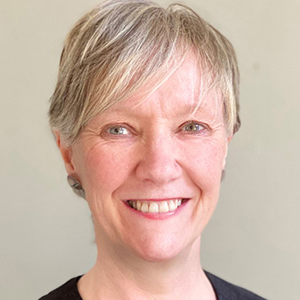How engagement and collaboration can help us find new opportunities in tertiary education

Personal reflections on Digifest 2025 from Heidi Fraser-Krauss, CEO.
This year’s Digifest proved to be the biggest and most inspiring ever. There was so much to experience and engage with. Over the two days, we had 60 sessions, including panel talks, break-outs, workshops and key notes. I just wish I could have attended every session.
This year, over 900 delegates joined us in person at the Birmingham ICC, with a further 1,700 or so registered delegates joining us online. Our online contingent stretched from the US and Canada to Australia, South Africa, Trinidad and Tobago and Japan. Judging from the time zones, some people were joining us in the middle of the night – that really is devotion to duty!
The event focused on how technology, pedagogy and policy can be harnessed to build a brighter future for all learners, and it was an inspiring two days of collaboration and discussion. Here are five key thoughts that this year’s conference has left me with.
A sense of excitement and optimism
Firstly, when I arrived at Digifest on the Tuesday morning, I felt that there was a real buzz. The hall was already full of people and the air was filled with a sense of excitement and optimism. It was obvious that we were all here to collaborate and learn, and the sessions I saw certainly demonstrated that.
The other thing I noticed that morning was how unique Digifest really is. Every year it brings together the higher education and further education communities, two worlds that can sometimes be very different, but which benefit so much from collaboration. To empower these communities, there has to be someone who brings them together, and I take that to be one of Jisc’s crucial roles.
There are always other moves available
The second point I’d like to mention was displayed in the inspiring video we showed before the sessions began on the Tuesday. There is always time to adapt strategy and take things in a different direction. Time to stop and lean into others who are on our side and know the game ahead. The sessions I attended after the video demonstrated just that, with so many different ideas and approaches being presented.
Failure can be positive
Thirdly, we all must remember that whatever strategy we have, it won’t always go to plan. In our keynote speech, Paul Iske, professor of individual and organisational learning at Maastricht University, shared his thoughts on how to ‘fail brilliantly’.
As Paul says, we should always endeavour to ‘fail forward’, taking learnings from everything that doesn’t go quite right, then share them and learn from them. Paul certainly set the tone for the conference – after his presentation, I witnessed a number of conversations about unexpected outcomes and how people learnt from them.
The future is already with us
My fourth point came to me when I attended the Humanity+ session from Andy Niah, chair in science comms and future media at the University of Salford. Jisc is here to help the tertiary education sector make the most of the very latest digital technology such as AI, but even I was surprised by how advanced some of the latest tech truly is.
During the session I felt like I really was a member of the older generation! I can’t see myself wearing digital clothes, for instance, but I know that there are other generations for whom they will feel natural.
The session made me feel that some of the concepts that we have seen in sci-fi films are now here and available for us to enhance the curriculum. Drone racing, for example, reminded me of Star Wars, but it is a future that has already arrived. I’m not sure how I feel about that, but it’s Digifest’s role to add insight and make us challenge ourselves.
With each move we make, we might see things differently. So, although we have a strategy and a direction of travel, you can decide to take a different tack and see the world in a new light. I hope that all our delegates took some of the ideas from Digifest back to their organisations to try and do things in a different way.
Instilling confidence to play the long game
And my final thought? Right now, it can feel difficult to play the long game. There’s a lot of change, a lot of noise and uncertainty. The financial crisis is challenging all of us and making us question the way forward. But when things are difficult, that’s when innovation happens. We often show our best when funds are cut, and challenges appear. There will always be opportunity to be found and acted on.
Thank you to all our speakers, presenters and exhibitors this year, as well as our sponsors and strategic partner, Adobe.
And of course, thanks to all of you who attended, whether online or in person. If you missed anything and would like to catch up, you can watch our recorded sessions until 30 April 2025. I’m looking forward to seeing you at Digifest 2026 – and in the meantime, make sure to check out our report on how to approach digital transformation.
About the author

I joined Jisc as chief executive officer in September 2021. My key priority is to ensure Jisc stays innovative and focused on the needs of students, educators and researchers in what will be a turbulent but, I am sure, productive time ahead.